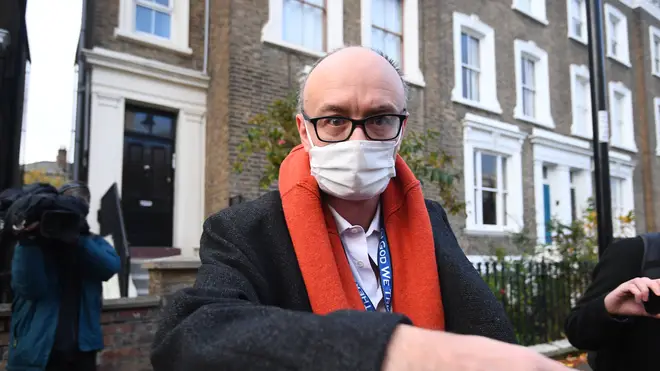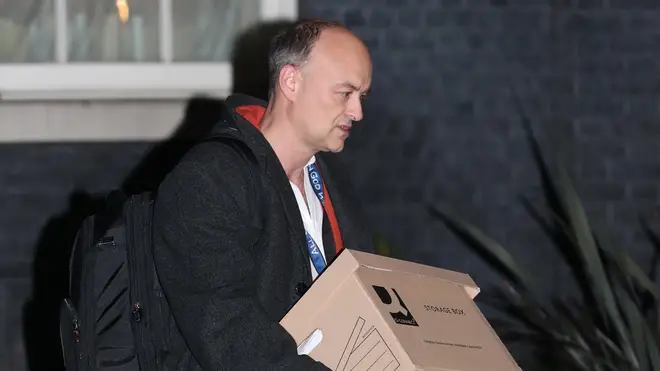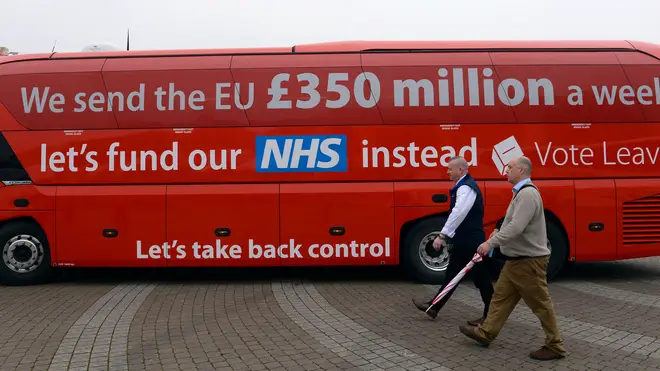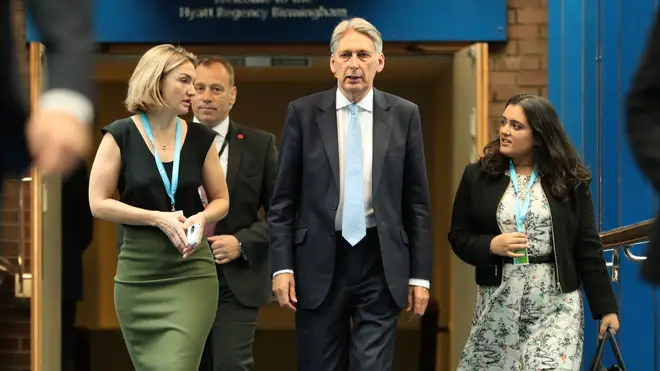
Richard Spurr 1am - 4am
13 November 2020, 18:14 | Updated: 13 November 2020, 18:54

Dominic Cummings has become one of the most controversial names in modern British politics, meaning his sudden resignation is just the latest of his headline-worthy moves.
As the chief adviser to the prime minister, Mr Cummings was neither a member of parliament nor an electee - despite receiving the level of press coverage an average politician may expect.
He was at times known for his idiosyncratic wardrobe and his dislike for journalists, but the Eurosceptic's name was firmly placed on the map when he masterminded the Vote Leave campaign.
But Mr Cummings is now leaving Downing Street for the final time on Friday after quitting with immediate effect.
So - here are some of the biggest moments that have defined his career.
Back in May, it was revealed Mr Cummings had broken lockdown rules at the height of the pandemic to drive hundreds of miles from London to Durham.
Firstly, the chief adviser said he had made the journey to his parents' residence to ensure childcare was in place for his four-year-old son.

Dominic Cummings: legal rules around lockdown 'did not cover his circumstances'
He then made another hugely-contested trip to Barnard Castle, which he claims was to test his eyesight while recovering from COVID-19.
The entire saga resulted in Mr Cummings, himself, holding a solo press conference - a move practically unheard of for a civil servant - and in which he recounted his journey, insisting there was no wrongdoing.
Also during the height of the first wave, Mr Cummings was reported to have attended meetings of the Scientific Advisory Group for Emergencies (SAGE), which is advising the government on its coronavirus response.
A number of members raised concerns about its unexpected attendee due to the group's role as an independent body of advisers.
READ MORE: Dominic Cummings quits Downing Street
Playing down these concerns, a Downing Street spokesperson said at the time: "It is factually wrong and damaging to sensible public debate to imply [SAGE] advice is affected by government advisers listening to discussions.
"It is entirely right that No.10 advisers attend to better understand the scientific debate and the decisions that need to be taken."

Mr Cummings was the campaign director for Vote Leave, the official pro-Brexit operation - and it was his idea for the infamous Brexit bus that will go down in history.
Emblazoned on the side of the red coach was the claim that the UK would be able to give £350m to the NHS every week after departing from the European Union.
This claim was believed to be a big driving factor in the campaign's success, despite it eventually being proven to be incorrect.
READ MORE: Tim Montgomerie: 'Every Dominic Cummings relationship doesn't end well and doesn't end quietly'

On Friday, a special adviser to former chancellor Sajid Javid who was sacked by Mr Cummings without Mr Javid's knowledge, was reported to have been given a five-figure payout by the government.
Sonia Khan had been pursuing an employment tribunal claim since her dismissal last year, which saw her escorted from No.10 by police.
It was due to be heard in court in the next few weeks and would have seen Mr Cummings face questions about his conduct; however, the payout has now put a stop to this.
READ MORE: Former special adviser tells LBC 'writing has been on the wall for a while' for Cummings

Mr Cummings was due to face a parliamentary committee to answer questions amid an inquiry into fake news during the EU referendum campaign - but he refused to show up.
He was found in contempt of parliament as a result, following which committee chair Damian Collins said the no-show revealed a "total disregard" for authority.
READ MORE: 'Not before time': MPs react to departure of Dominic Cummings
In a blog post, meanwhile, Mr Cummings said he had told Mr Collins to "get lost" after receiving his summons, but insisted he was still willing to appear.
"My offer to give evidence to MPs remains open. As does my reasonable demand that ALL OF US ARE UNDER OATH TO TELL THE TRUTH. I hope they take it up but am not hopeful," he wrote.